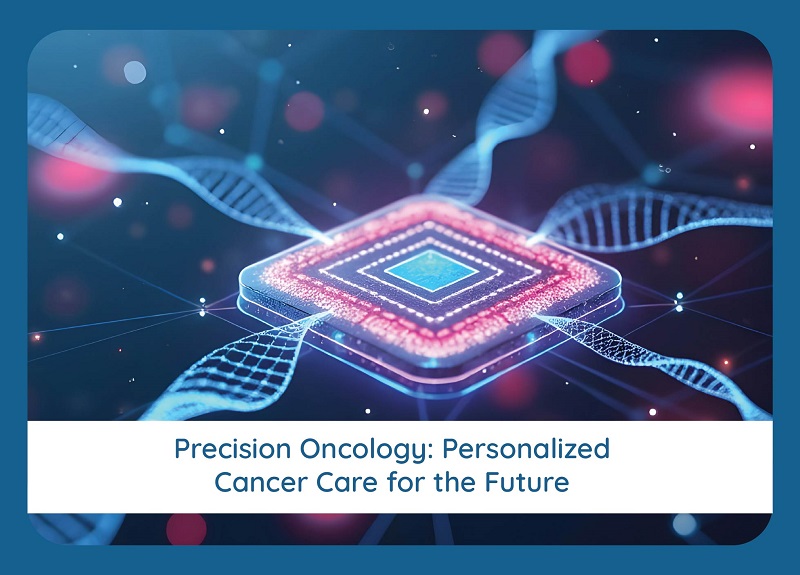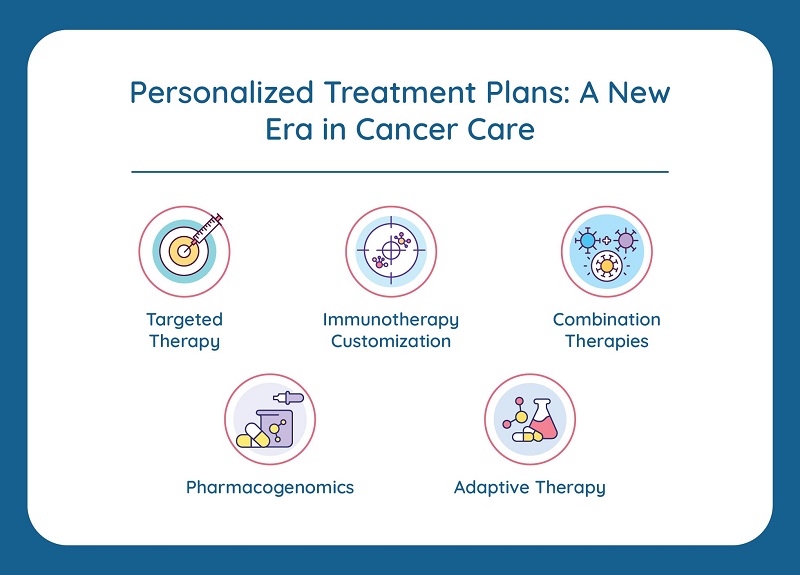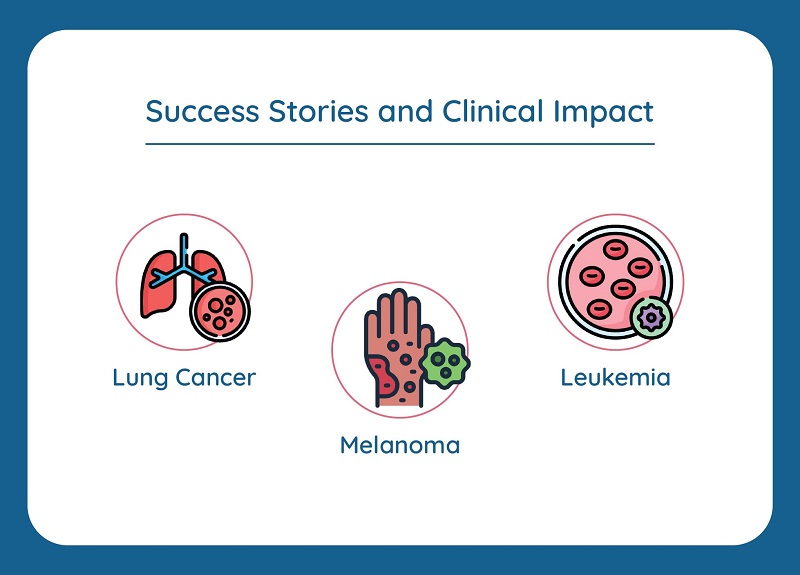
Precision Oncology: Personalized Cancer Care for the Future
Precision oncology, also known as personalized cancer therapy, represents a revolutionary approach in cancer care that customizes treatment based on the genetic makeup of an individual's cancer. Unlike traditional cancer treatments, which often rely on generalized protocols such as chemotherapy or radiation therapy based on cancer type and stage, precision oncology aims to identify and target the specific molecular changes that drive cancer growth in a particular patient. This approach enhances treatment efficacy, minimizes side effects, and paves the way for more informed decision-making in clinical practice.
Understanding the Science Behind Precision Oncology
At the core of precision oncology lies the concept of molecular profiling - analyzing the DNA, RNA, and protein expression in cancer cells. Cancer is fundamentally a genetic disease caused by changes in genes that control cell growth and division. These changes, or mutations, can vary widely among individuals, even for patients with the same type of cancer. Precision oncology uses advanced technologies like next-generation sequencing (NGS), whole genome sequencing (WGS), and transcriptomic and proteomic profiling to detect these mutations. Once the key mutations are identified, oncologists can determine which targeted therapies are likely to work best.
From Diagnosis to Treatment: The Precision Oncology Workflow:
Molecular Diagnosis: After a cancer diagnosis is confirmed via biopsy or imaging, a portion of the tumor tissue or blood sample (in liquid biopsy) is sent for genetic and molecular analysis.
Bioinformatics Analysis: Complex computational tools analyze the data to identify significant mutations and biomarkers that influence cancer progression or resistance to drugs.
Interpretation and Reporting: The genomic data is interpreted by molecular pathologists and oncologists, often supported by clinical decision platforms that link mutations to known drug responses.
Personalized Treatment Plan: Based on the molecular profile, a tailored treatment plan is developed. This may include targeted therapies, immunotherapy, hormone therapy, or inclusion in clinical trials.
Monitoring and Adaptation: Precision oncology also allows dynamic treatment - reassessing molecular changes over time to adapt therapy if resistance develops or cancer evolves.
Personalized Treatment Plans: A New Era in Cancer Care
The essence of precision oncology lies in personalized treatment plans, which consider not only the tumor's genetic profile but also the patient's lifestyle, medical history, and even environmental exposures. Here's how these plans differ from traditional treatments:
Targeted Therapy: These drugs specifically inhibit proteins or pathways mutated in cancer cells. For example, HER2-positive breast cancer can be effectively treated with trastuzumab, which targets the HER2 protein overexpressed in the tumor.
Immunotherapy Customization: Immunotherapies like checkpoint inhibitors can be more effective in patients whose tumors express specific markers like PD-L1 or have high tumor mutation burdens (TMB).
Pharmacogenomics: This assesses how a patient's own genetic makeup affects drug metabolism and response, ensuring optimal dosing and minimizing toxicity.
Combination Therapies: Personalized plans often include combinations of therapies designed to hit multiple cancer-driving pathways simultaneously or sequentially.
Adaptive Therapy: As cancer evolves under treatment pressure, Regular molecular monitoring allows real-time modification of treatment strategies to overcome drug resistance.


Success Stories and Clinical Impact
Precision oncology has already demonstrated transformative success in several cancer types:
Lung Cancer: People with a specific mutation (like EGFR or ALK) live longer and feel better when they get targeted treatments.
Melanoma: A skin cancer called melanoma responds well to drugs that target a gene called BRAF.
Leukemia: A type of blood cancer called chronic myeloid leukemia (CML) used to be hard to treat. Now, a drug called imatinib has changed lives by targeting a specific gene.
Challenges and Future Directions
While promising, precision oncology faces several challenges:
Access and Cost Advanced genomic testing and targeted therapies are expensive and not universally accessible.
Tumor Heterogeneity Cancers are often composed of diverse cells with different mutations, making it difficult to find a single effective treatment.
Data Interpretation The volume and complexity of genomic data can make interpretation challenging, requiring sophisticated bioinformatics support.
Resistance Mechanisms Tumors can develop new mutations to escape targeted treatments, necessitating continuous monitoring and evolving strategies.
Limited Targets Not all tumors have identifiable or “druggable” mutations, and some targetable mutations lack effective treatments.
Despite these hurdles, the field is rapidly evolving. New technologies like single-cell sequencing, artificial intelligence (AI)-driven diagnostics, and liquid biopsies are expanding the reach of precision oncology. Increasing collaboration among research institutions, pharmaceutical companies, and regulatory bodies is also accelerating the translation of discoveries into clinical practice.
Role of Artificial Intelligence and Big Data
AI and machine learning play a pivotal role in precision oncology. These tools can process vast datasets to identify patterns and predict treatment responses. AI-driven platforms can integrate clinical, genomic, radiologic, and pathology data to assist oncologists in making more informed decisions.
The Promise of Preventive and Preemptive Oncology
Precision oncology is not limited to treatment. It is increasingly being used in cancer prevention and early detection. Individuals with inherited cancer risk syndromes (e.g., BRCA1/2 mutations) can benefit from preventive measures or early screening. Liquid biopsies are being explored for early cancer detection by identifying circulating tumor DNA (ctDNA) in asymptomatic individuals.
Global Outlook and Equity in Precision Oncology
Achieving equity in precision oncology is a major global challenge. While high-income countries rapidly adopt precision medicine technologies, low- and middle-income countries often lag due to lack of infrastructure, trained personnel, and funding.
Precision oncology is fundamentally changing how we understand, diagnose, and treat cancer. By aligning treatment with the individual biology of each patient’s tumor, it offers a path toward more effective, less toxic, and ultimately more humane cancer care. With ongoing research, technological innovation, and global collaboration, the dream of curing or effectively managing cancer through personalized approaches is becoming an achievable reality.
